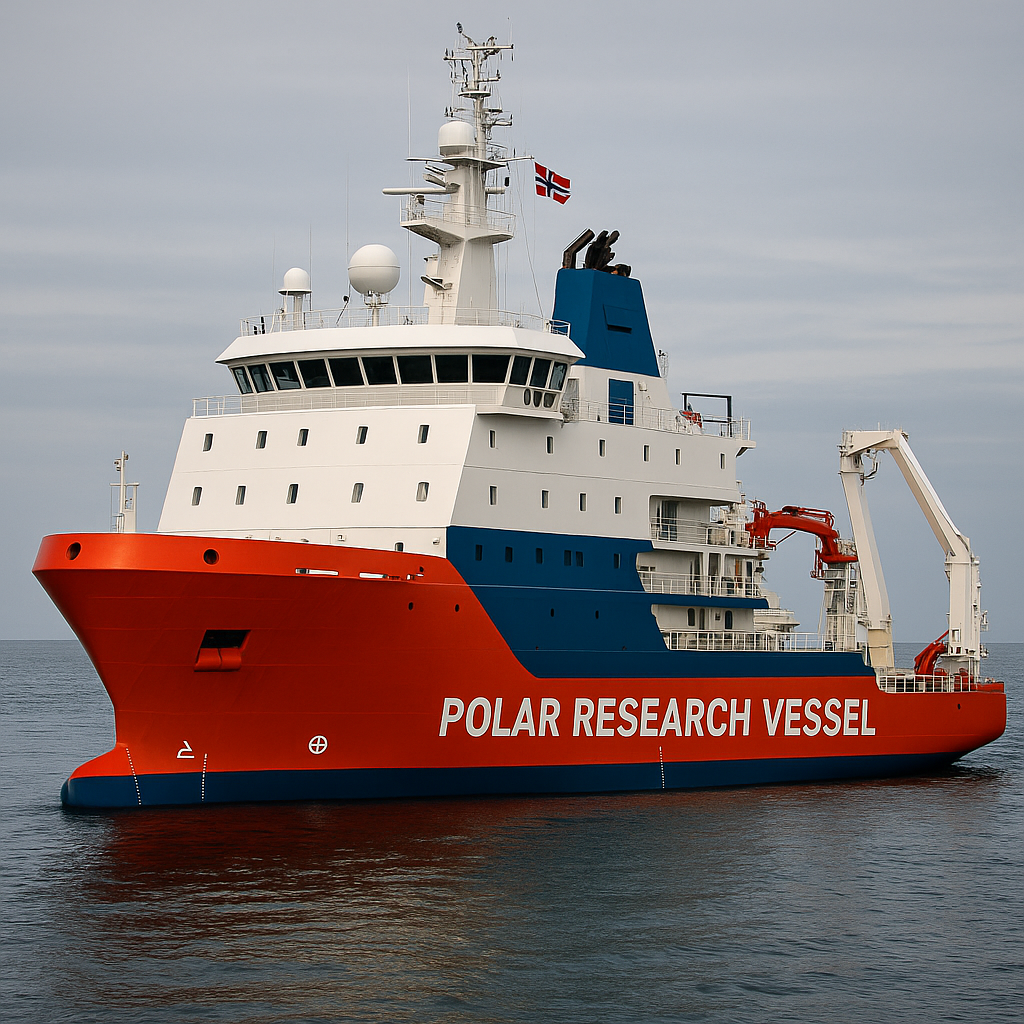India Sets Sail Towards Maritime Excellence: First Polar Research Vessel to Be Built in Kolkata
India is embarking on a groundbreaking journey in maritime science and sustainability. In a bold step forward, the Ministry of Ports, Shipping & Waterways (MoPSW) has announced the construction of the country’s first-ever Polar Research Vessel (PRV). This initiative follows a strategic MoU between Garden Reach Shipbuilders and Engineers Limited (GRSE), based in Kolkata, and Norway’s Kongsberg. Together, they aim to enhance scientific exploration, shipbuilding innovation, and international cooperation.
GRSE and Kongsberg Collaborate to Build India’s First Polar Research Vessel
During a special MoU signing ceremony in Oslo, Union Minister Sarbananda Sonowal celebrated the partnership as a major win for India’s maritime capabilities. Under this agreement, Kongsberg will offer its design expertise, while GRSE will construct the vessel at its Kolkata facility. This will enable India to produce a state-of-the-art PRV tailored to the needs of the National Centre for Polar and Ocean Research (NCOPR).
Importantly, this vessel will include cutting-edge scientific instruments. These will help researchers study deep oceans, understand marine biodiversity, and contribute to climate change research. By executing this project domestically, India will further advance the ‘Make in India’ campaign and demonstrate its growing leadership in high-tech shipbuilding.
MAHASAGAR Vision: India’s Comprehensive Maritime Strategy
At the Shipping & Ocean Business Ministerial Meeting, Shri Sonowal emphasized India’s forward-looking maritime vision, now encapsulated in MAHASAGAR – Mutual and Holistic Advancement for Security Across the Regions. This upgraded version of the earlier SAGAR initiative reflects India’s resolve to ensure economic cooperation, environmental sustainability, and regional security.
He explained how the Sagarmala 2.0 programme supports these goals. It focuses on boosting shipbuilding, port development, and maritime logistics. Notably, it also aims to strengthen coastal communities and promote inclusive maritime growth.
India-Norway Maritime Cooperation: Forging a Sustainable Future
In addition to the MoU, Shri Sonowal held a productive roundtable with the Norwegian Shipowners’ Association (NSA). He invited Norwegian firms to invest in India’s evolving maritime ecosystem. During the meeting, he stressed India’s strengths—ranging from green port infrastructure and alternative fuels like green hydrogen to skilled manpower and ship recycling capabilities.
India’s shipyards already handle 11% of NSA’s global order book. Shri Sonowal urged Norway to expand this collaboration and take advantage of India’s ship-breaking credit note scheme. Moreover, he highlighted India’s ranked second position in NSA’s global seafarer base, calling for enhanced recruitment partnerships.
Thanks to initiatives like the $2.9 billion Maritime Development Fund, global investors now see India as a strategic and sustainable hub for shipbuilding, port development, and logistics. The country’s 87% HKC-compliant ship recycling yards add even more value to this proposition.
A Vision That Goes Beyond Shipbuilding
This Polar Research Vessel represents more than just a new ship; it symbolizes India’s resolve to lead in ocean research and maritime sustainability. Built domestically, equipped internationally, and envisioned globally—this vessel will help India play a bigger role in the international scientific and climate action community.
By building this vessel, India is not just aiming to strengthen its polar research. It is also proving that collaborative, innovative, and eco-friendly solutions are possible when nations work together.
A New Era of Maritime Diplomacy and Scientific Discovery
India’s decision to construct its first Polar Research Vessel—backed by its alliance with Norway’s Kongsberg—signals a transformative moment for the country’s maritime future. Through the MAHASAGAR vision, India is working to unite scientific ambition, sustainability, and economic development on a global scale.
With this initiative, India is setting sail towards a future of discovery, innovation, and international leadership in maritime science.

👍👍🙏